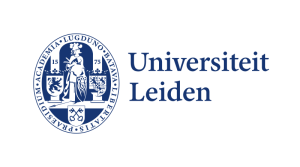Since its early foundation in 1575, Leiden University (ULEI) has been one of the most prominent research-oriented universities in Europe. It is a member of several international university networks, such as the League of European Research Universities. ULEI has a strong international focus and covers many fields of study. The university is committed to making academic knowledge available, not only to students and to the academic world, but also policymakers, practitioners and the wider public, both nationally and internationally.
Two institutes of ULEI take part in this project: The Institute for History (IfH) and the Van Vollenhoven Institute for Law, Governance and Society (VVI). Both have a strong international orientation and extensive experience in carrying out empirical research in Africa. In recent years, the IfH has implemented several interdisciplinary research programmes on mobility and connectivity in Sub-Saharan Africa. The VVI is involved in various socio-legal research programmes on conflict-affected areas, and displaced people and their governance.
Roles/tasks in the project
ULEI is involved in setting up the methodology for data collection and concept development as part of WP 1. The IfH will contribute to the desk research of WP 2 ‘Learning from the Past’, especially through the case study on East Africa. The VVI will contribute to the desk research of WP 3 ‘Governing displacement’, especially through the case study on the DR Congo. Furthermore, the VVI will lead the WP 4 ‘Investigating transnational figurations of displacement in Africa’. As part of this work package, the IfH will collect empirical data on the connectivity and mobility of Congolese refugees in Tanzania. This will be done in collaboration with consortium partner Dignity Kwanza. The VVI will carry out similar empirical research on displaced Congolese within the DRC itself. This will be done in collaboration with Congolese researchers. We will compare our findings from Tanzania and Congo with the findings of the other partners on Eritreans in Ethiopia.
Based on our research findings, we hope to contribute to the identification of solutions and the creation of impact under WP 7 and 8.
Team members involved in the project
Carolien Jacobs
Carolien Jacobs (VVI) has a background in international development (sociology of rural development) and legal anthropology and holds a PhD from Wageningen University/Max Planck Institute for Social Anthropology (2010). Since 2014, she has been involved in projects on justice and security for displaced people in urban settings in the DRC. Most of her research is policy- and praxis-oriented, interdisciplinary in nature, and combines different methods of data collection, based on extensive fieldwork in partnership with local researchers.
Mirjam de Bruijn
Mirjam de Bruijn (IfH) is an anthropologist whose work has an interdisciplinary character with a preference for contemporary history and cultural studies. Mirjam is an Africanist with a focus on West and Central Africa. She has done and does extensive (qualitative) fieldwork in Cameroon, Chad and Mali. Her specific fields of interest are nomadism, youth and children, social (in)security, poverty, marginality/social and economic exclusion, violence and human rights, Information and Communication Technologies (ICTs)
Catherina Wilson
Catherina Wilson recently concluded her PhD at the Institute for History (Leiden University) on mobility, refugees and other conflict-related mobile people in Central Africa. She previously studied African Studies at Leiden and Ghent universities and has been travelling to and researching Central Africa (especially DR Congo and CAR) since 2005. In addition to mobility and migration, her research interests include urban youth, youth languages, popular art, identity, oral histories, qualitative research methods and alternative knowledge producing practices.
